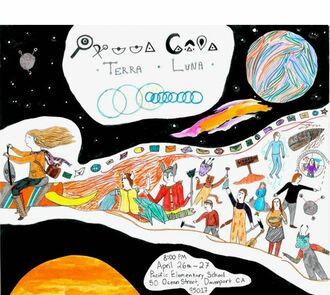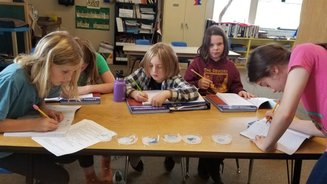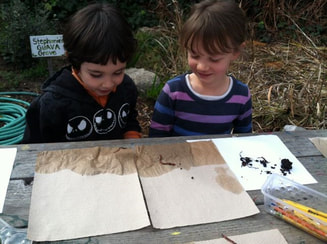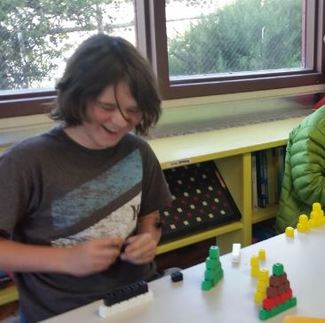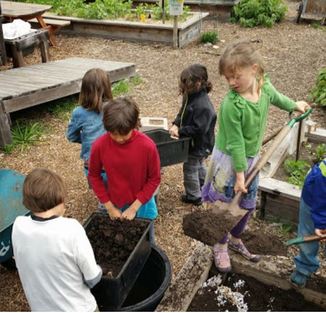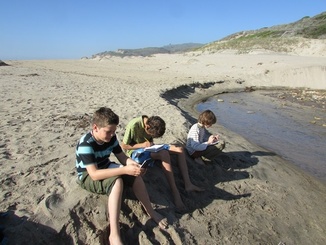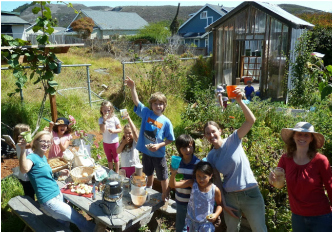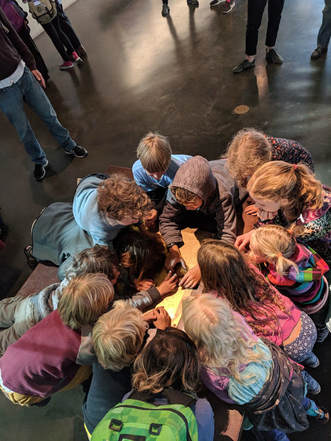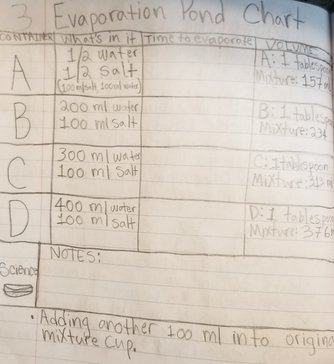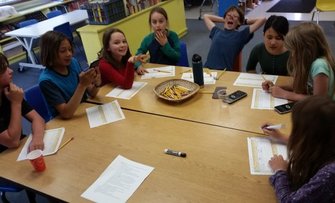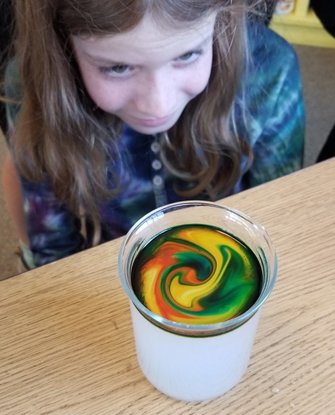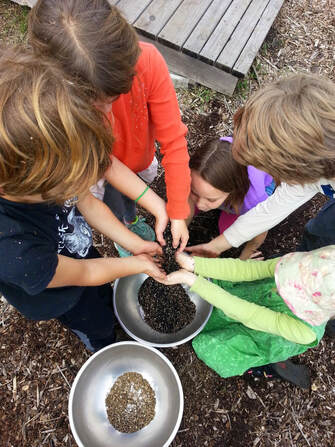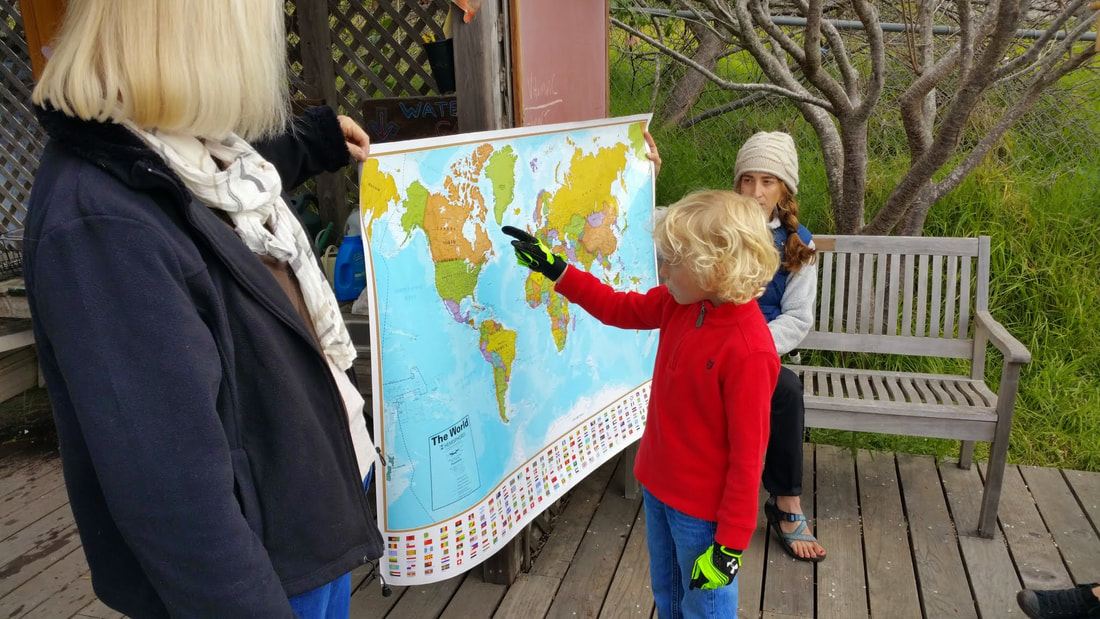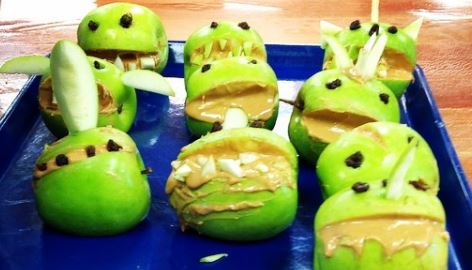Independent Study Program
Frequently Asked Questions
|
NOTE: To express interest in joining the Independent Study Program, please complete the appropriate Interest Form.
What is the Independent Study (IS) Program? Pacific Elementary School’s Independent Study (IS) Program is a hybrid program consisting of three days per week of classroom learning and two days per week of studying at home. Studying at home is supported by field trips and teacher-provided curriculum. Parents are encouraged to volunteer in the classroom, or in another significant capacity at the school, at least weekly. This structure allows IS families and students to experience many of the benefits of BOTH homeschooling, such as more time outside and closer relationships with families, AND classroom learning, including experiential learning in groups, dedicated and experienced teachers, and connection with peers. In general our IS students are engaged, enthusiastic learners, growing and thriving both academically and socially. Who are the teachers for the IS program? IS students are taught by the same experienced and dedicated teachers as the 5-day program. In addition, Joy Haas, who teaches for Pacific School's Home Study program, also serves as the coordinator for the IS program. Mrs. Joy attends many of the IS field trips, helps IS families find appropriate volunteer roles, answers questions about the program, and supports the other teachers if needed. She also offers optional online classes open to both IS and Home Study students. How does the classroom part of the program work? Students attend class on Mondays, Tuesdays, and Thursdays. They join Pacific School's 5-day students in our TK-6 classrooms. Classes follow Pacific School's Calendar. IS students attend school on the first and last days of school, even if they fall on a Wednesday or Friday. The classes focus on core academic subjects, especially math, reading, writing, science, and social studies. Subjects are taught by the teacher, classroom aide, and parent volunteers through whole group instruction, small-group activities, and individual lessons. Math is coordinated for first through sixth grade students so that they can attend the math group appropriate to their learning level, if that is not the same as their grade level. Students also participate in a variety of other classes and enrichment activities depending on their grade level and the schedule. These activities may include Life Lab (school garden) for kindergarten through fourth grade, library time, FoodLab for fifth and sixth grade, reading buddies, class fundraisers, etc. Since the main focus of the classroom time is core academics, and the students only attend school three days per week, scheduling may not allow all of these activities to occur on IS days. What type of curriculum is used in the Independent Study program? The core curriculum follows California State Standards, as adopted by the school board (Course Descriptions). The IS program is an alternative method of implementing the curriculum, not an alternative curriculum. Both classroom and home instruction are encouraged to use a variety of teaching methods including individual, small-group, and whole-group instruction, collaborative and interdisciplinary projects, hands-on activities, discussions, textbooks, workbooks, etc. Classroom volunteers have the freedom to be creative and have produced a diversity of amazing lessons over the years. Students in grades 3 through 6 participate in California’s state-mandated assessment programs, including the CAASPP assessment. How do parent volunteers support the program? IS parents are encouraged to volunteer for Pacific School on a weekly basis, either in the classroom or another significant capacity. In the classroom, volunteers work with the teacher to figure out a role which best fits the volunteer's interests and skills and supports the teacher's educational goals for the students. Volunteers who are comfortable taking on more responsibility are welcome and encouraged to teach whole units or year-long subject areas to a subset of the class or the whole class. Volunteers who prefer more direction from the teacher are often extremely useful for running a center within the classroom and/or working with individual or small groups of students on specific tasks or skills. Parents can also help supervise students during snack, recess, and lunch. Parents are not limited to working with the class containing their own student(s). If a parent prefers, they can work with a grade-level or teacher they feel comfortable with, whether or not their student(s) are in that classroom. Parents can also request tasks that do not involve interacting with students if they prefer. Both teachers and the office often have clerical or administrative tasks that can be done by volunteers. In addition, the Life Lab garden and school grounds always need care and maintenance. Parents who are handy can assist with school repairs. In addition, there are important roles that IS (or other) parents are needed to fill each year:
Finally, parents can volunteer to participate on Site Council, the Wellness Committee, Friends of FoodLab, and/or Parents' Club (Pacific School Foundation). These are all very important roles that need to be filled for Pacific School to function well and meet it's fundraising goals each year. Although volunteer time is not a requirement for enrollment or continued participation in IS, research has shown that parents becoming involved in their child's education at school is one of the best predictors of the student's future academic success. What opportunities are there for gifted or advanced students? Students who are academically ready to work above their grade level in math are are placed with an older group of students. When appropriate and logistically feasible, students may be able to join above grade-level groups for other subjects as well. In addition, Pacific School is one of few elementary schools in the area maintain a Gifted and Talented Education (GATE) program. Starting in fourth grade, students who qualify may participate in our GATE program taught by Wendy Milette. What happens during the at-home part of the program? Home study time is an essential and required part of the program. IS field trips (described below) supplement, but do not replace, supervised home study. On Wednesdays and Fridays, Mrs. Joy will provide brief online classes open to all IS students. These classes may include art activities, social/emotional learning and check-ins, opportunities for students to share their writing or other accomplishments, etc. Attending online classes is optional but encouraged. Teachers (and/or parent volunteers) provide students with weekly homework assignments, which should be completed and returned the following week. Subject to the teacher’s approval, families wishing to modify the homework assignments may do so, as long as the modified assignment represents comparable learning experiences. A typical weekly homework assignment might include some or all of the following:
Families and teachers meet a minimum of three times per year to discuss student progress and plan for the upcoming period. Teachers offer materials, textbooks, workbooks, curriculum ideas, and training to interested families to support the home study portion of the program. (By board policy and state law, anything of value that the district provides IS students and 5-day students must be equivalent.) Parents must provide documentation of home study in a manner approved by the teacher and district. If students are attending class, completing their in-class assignments, and turning in their weekly homework packets and PE logs, little or no additional documentation is likely to be needed. If the student has been absent or not completed their assignments, families may be responsible for providing more extensive documentation of home study. Ongoing failure to complete assignments and/or provide adequate documentation of home-study will result in being removed from the program. Late assignments cannot be used for attendance credit, but can be used to demonstrate of satisfactory educational progress. How does the field trip program work? Parents plan field trips for about three Fridays of each month. All field trips are optional. However, they are an excellent opportunity for students and families to explore many of the amazing resources in the Santa Cruz and greater Bay area and to strengthen friendships and connections within the IS community. Generally, each family organizes one or two field trips each school year. Most field trips include all IS students, K-6, but some are organized for a narrower age range. Some past field trips have included: local farm tours, sewing and craft classes, horsemanship, animal shelter, land fill and recycle center tours, tours of local businesses, Exploratorium, NASA Ames Research Center, San Francisco Zoo, Santa Cruz Mission, etc. In addition, there are usually two 2-night camping trips organized each year, one in the fall and one in the spring. I'm worried that my student won't get all the skills they need to succeed. How do IS students do when they transition to regular schools? Research on home schooling and education in small groups has consistently shown that the rich adult-to-student ratios present in both environments result in substantial educational gains not generally seen in traditional classroom settings. In other words, students can learn and retain more with fewer hours per week of instruction. Likewise, research has found that the most accurate predictors of student achievement in school are not family income or social status, but the extent to which the family creates a home environment that encourages learning, communicates high yet reasonable expectations for the child’s achievement, and becomes involved in the child’s education at school. In addition, our own experience in over fifteen years of running the program is that students who graduate from IS are extremely well-prepared for middle and high school, having excellent study skills, social-emotional skills, and a well-rounded and diverse education. For some specific examples, see IS Quotes. What are the expectations for attendance? Prompt and regular attendance on classroom days is an expectation for all students, regardless of academic progress. Frequent or prolonged tardies or absences are disruptive to the community and learning process and burden parent volunteer teachers. IS students are expected to follow the same standards for attendance as other students at Pacific Elementary School. If a student is absent for more than 10% of the core classroom days (11 days per year) for any reason, including home schooling, an evaluation may be made to determine whether independent study is an appropriate placement for this student, or whether they might be better served by Pacific School's Home Study Program. How will my student be evaluated? IS students may not receive traditional report cards or letter grades. Instead, the regular parent meetings can serve as a time for families and teachers to discuss student progress. If one or more of the following conditions occur, the teacher will convene a meeting with the parent and student to review the student’s learning agreement and reconsider the independent study program’s impact on the student’s achievement and well-being:
Our family might be interested in all home study, with no classroom time. Is that an option? Yes, but you need to enroll in Pacific School's Home Study Program, not IS. IS is for families who want in-person classroom and field experiences. What types of students and families thrive in Independent Study? IS welcomes families who are looking for a hybrid program with a mixture of classroom learning, field trips, and home study. Families with many different family structures and educational philosophies have thrived in IS. That said, IS is not a good match for all students or families. Because of its emphasis on community development and long-term projects, it is not designed to support prolonged or frequent student absences. Participation in the program must be the voluntary choice of each student, and each student must be motivated to study within the terms of the agreement, both during on-campus class days and home study days. Repeated experience has shown that the Independent Study Program is NOT appropriate for:
In addition, IS students must meet the state-mandated requirements for vaccinations and submit appropriate proof to the office before attending the program. How do IS students interact with the rest of Pacific School? IS students attend class with students of the same grade level who are in Pacific School's traditional 5-day program, which allows them to develop friendships with a larger and more diverse set of peers than if they were interacting only with other IS students. In addition, IS students benefit from the many fabulous programs and features of Pacific Elementary School, including its production-quality school garden, award-winning school lunch program, extensive school library, proximity to San Vicente Creek and the beach (used for field science activities), and experienced, caring staff. There is after school recreation available each day from 12:15 to 5:15. IS students in fourth through sixth grade are evaluated for placement in the in the gifted and talented program. Fifth and sixth grade students participate in the school’s award winning FoodLab program, and sixth graders fundraise for and enjoy multi-day camping trips. All students are encouraged to participate in the annual student-made film festival. My family lives in the Davenport School District. Are we guaranteed a spot in the Independent Study Program? Admission to the program, even for in-district families, depends on whether the program is an appropriate fit for the student and family. If you are a new family interested in IS, follow the directions here. If you are a returning family interested in IS, follow the directions here. My family is interested in Independent Study, but we live out of district. How do we get considered for a spot in the program? If you are a new family, complete the appropriate interest form. If you are a returning family, discuss your plans with your teacher and Chyna Darby, Registrar. Where can I learn even more about the program? All families sign the Learning Agreement at the beginning of each year. Quotes from parents about the program can be found here. The program handbook supplement, which provides logistical information for new families, can be found here. You can also call the school office and speak with Elizabeth Andrews, Chyna Darby, or Hillary Redding, all of whom put students through the IS program. |
|
